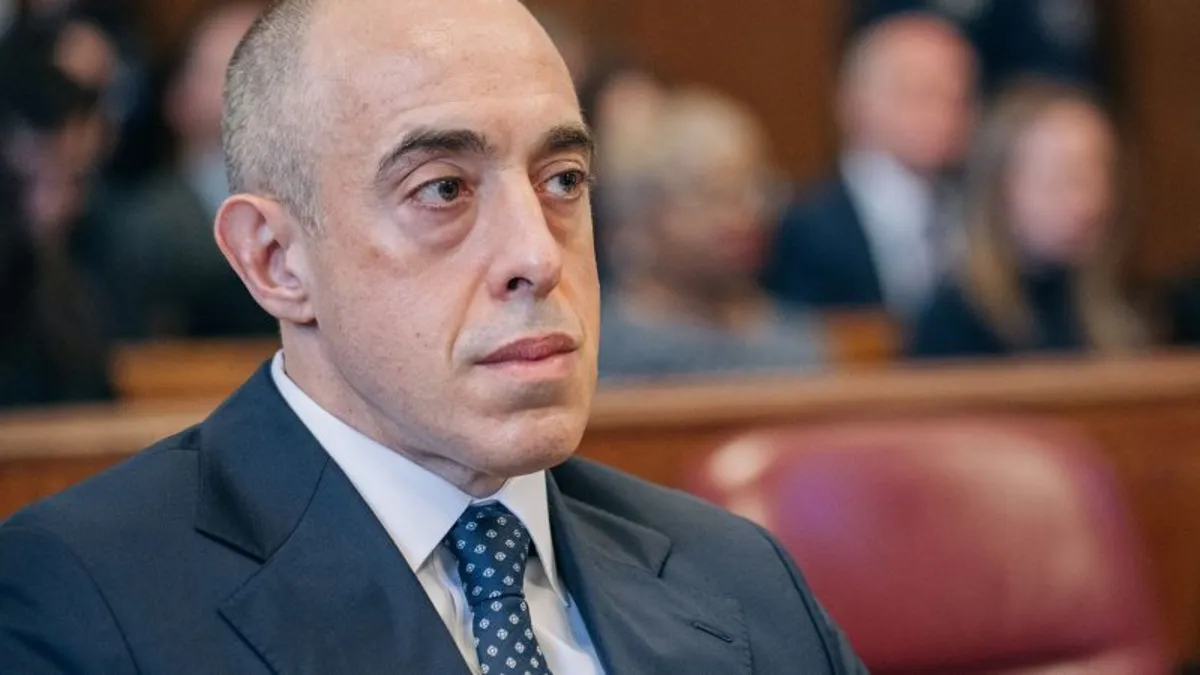
Emil Bove, a prominent Justice Department official who previously defended Donald Trump in various criminal indictments, has received confirmation for a lifetime appointment as a federal appellate judge. This appointment, however, has not come without significant controversy, as a small group of whistleblowers has accused Bove of improperly overseeing cases during his tenure with the administration.
Bove’s nomination for the 3rd US Circuit Court of Appeals stands out as one of the most contentious appointments made by Trump. In recent weeks, there has been intense opposition from the legal community, including hundreds of former Justice Department prosecutors and numerous former judges who voiced their concerns. Despite these objections, the whistleblower materials presented to the Senate Judiciary Committee were insufficient to impede Bove's nomination.
The complaints filed by whistleblowers painted a picture of Bove as a leader at Trump’s Justice Department who was frustrated with his subordinates. He allegedly pressured them to align with the president’s policies, even in the face of significant pushback. Ultimately, the Senate confirmed Bove's nomination with a narrow 50-49 vote, primarily along party lines.
Among the serious accusations raised by whistleblowers were concerns regarding Bove’s interactions with rank-and-file prosecutors. Reports indicate that members of the powerful Senate Judiciary Committee were made aware of an audio recording from a meeting Bove held with prosecutors. In this meeting, Bove allegedly urged them to follow orders to dismiss a federal corruption case against New York Mayor Eric Adams. This has led to inquiries from Democrats on the committee regarding whether Bove's Senate testimony about the meeting contradicted the whistleblower's claims.
In addition to the Adams case, two other whistleblowers presented concerns about Bove’s approach to the courts while advocating for Trump’s immigration agenda. Their claims suggested that Bove’s actions sometimes deprived detainees of due process. Despite these serious allegations, all 12 Republican members of the Senate Judiciary Committee voted to advance his nomination.
As the final vote approached, Democratic Senator Cory Booker announced he had obtained new documentation related to Bove's alleged misconduct. He claimed to possess substantive information that could impact the nomination, inviting colleagues to review it. Media outlets, including The Washington Post, reported on a whistleblower who provided documentation to the Senate Judiciary Committee, alleging that Bove had misled the Senate during his testimony.
Senate Judiciary Chairman Chuck Grassley defended Bove, stating that his office had investigated the whistleblower allegations and found no misconduct. Grassley criticized Senate Democrats for pushing the confirmation vote too quickly while accusing them of not sharing whistleblower documentation promptly.
Despite the controversy, Bove's nomination advanced successfully. Notably, while most Republican senators supported Bove, a few, including Senators Lisa Murkowski and Susan Collins, opposed his confirmation. Collins expressed her concern about Bove’s ability to act as an impartial jurist. Nevertheless, key Republicans, such as Senator Thom Tillis, supported Bove, stating that he had not demonstrated any concerning behavior related to the January 6 Capitol attack.
Trump nominated Bove in May to serve on the US Circuit Court of Appeals, which oversees federal precedent in Pennsylvania, New Jersey, and Delaware. Before his role in the Justice Department, Bove was a private defense attorney for Trump, addressing multiple criminal indictments. His involvement in the Adams case has raised questions about his fitness for the federal bench, especially after a number of prosecutors resigned rather than follow his directions to dismiss the case.
Concerns about Bove's approach to immigration cases have also surfaced, with allegations that he encouraged attorneys to disregard court orders. During his congressional testimony, Bove claimed he did not recall making a controversial comment regarding ignoring court orders. These allegations continue to spark debate about his qualifications and the implications of his confirmation.
Overall, Emil Bove's confirmation as a federal appellate judge underscores the ongoing tensions within the legal community regarding the impact of political affiliations on judicial impartiality and the integrity of the Justice Department.